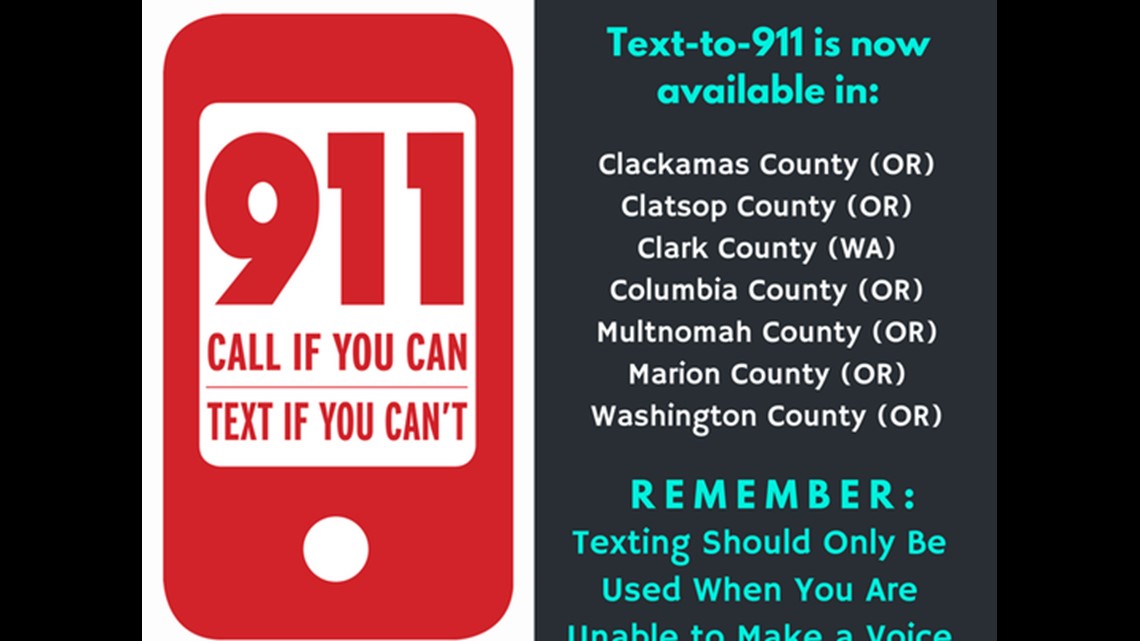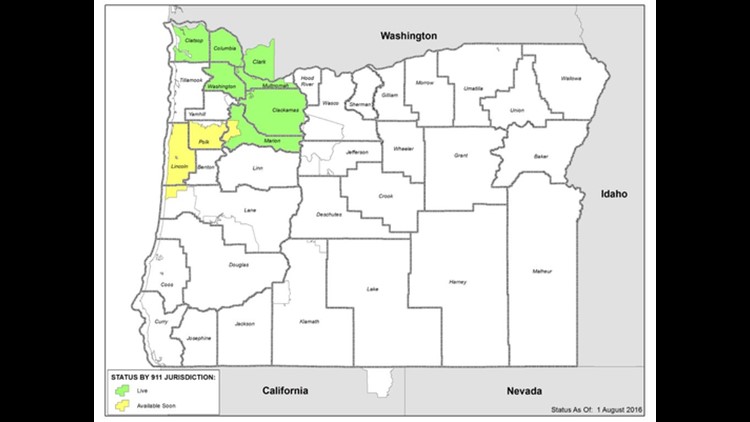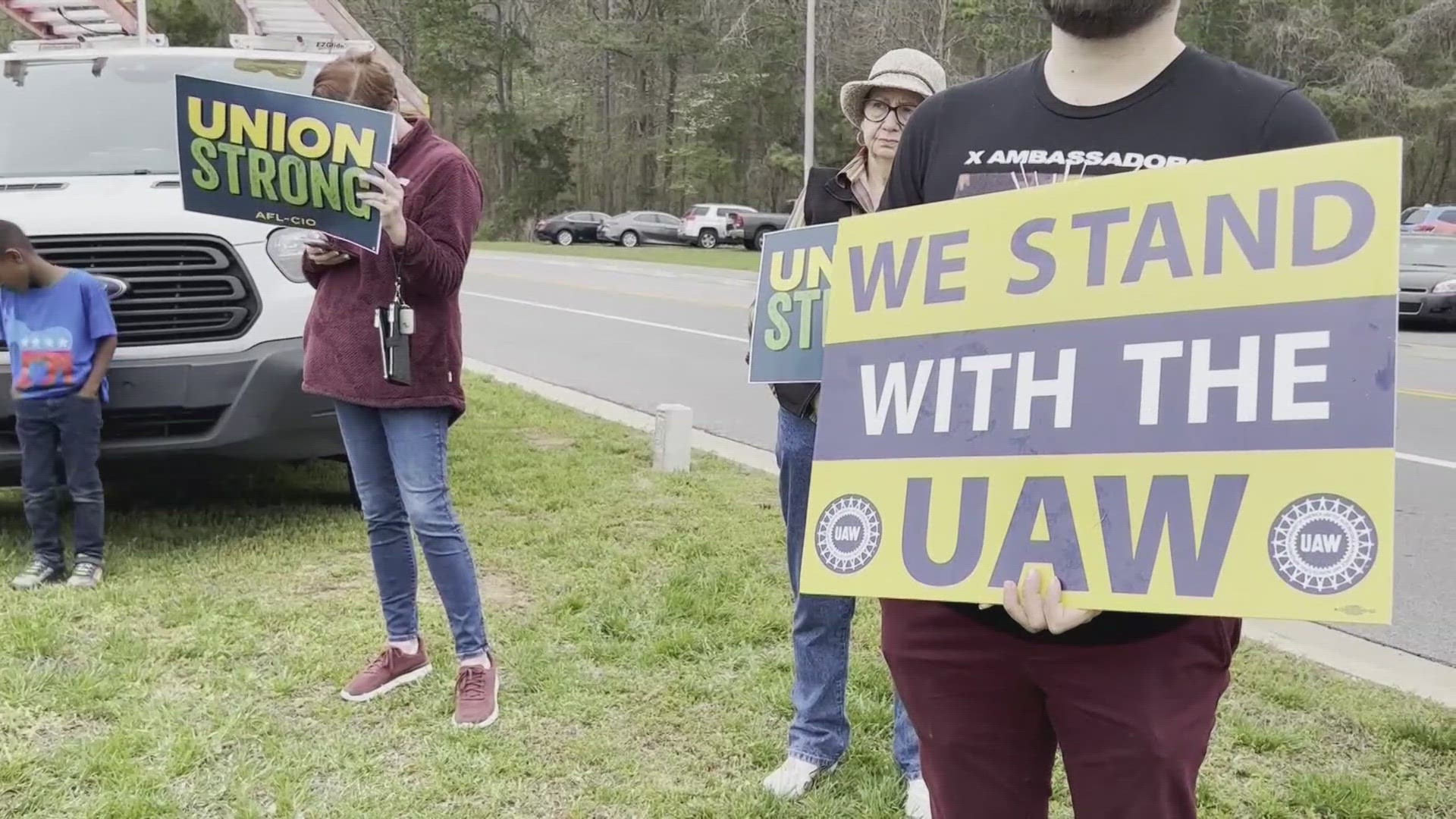Calling 9-1-1 isn't always an option. A home invasive or abusive partner can make calling dangerous, or people who are deaf, hard of hearing or have limited speech capabilities can struggle when communicating with dispatchers.
With those life-or-death scenarios in mind, several counties in Oregon and Washington launched their first Text-to-911 program.
"Text messaging is one of the primary ways people communicate today, especially younger people and members of the deaf and hard of hearing and speech disabilities community," said Gina Audritsh, director for METCOM 9-1-1.
As of August, people in Clatsop, Clackamas, Columbia, Clark, rural Marion, Multnomah and Washington counties can text their emergencies to 9-1-1.
The program launched with the slogan "Call if you can, text if you can't." Because information and location is harder to gather, people are encouraged to only text if making a voice call is impossible or dangerous.
The METCOM 9-1-1 dispatch center, which serves much of rural Marion County as well as portions of Linn and Clackamas counties, was one of several agencies to launch the service Tuesday.
Audritsh said the center's coverage area include expansive stretches of rivers, parks, mountains, forests and trails known for recreation. In limited cell service locations, people are often unable to place calls but can still text.


Willamette Valley Communications Center is working to launch the same program in Salem, Polk County and Lincoln County. Operations manager Tony Collins said the center will join the Text-to-911 service in three to six months.
The service will be much faster than currently available systems for the hearing-impaired community, he said.
Audritsh said the center serves a large American Sign Language population, including Camp Taloali, a camp for hard of hearing and deaf children near Stayton.
Prior to the launch of Text-to-911 service, the only form of nonverbal communication with 9-1-1 from Camp Taolali was through a direct dial phone line that would only broadcast a recording of the location of the camp and state it was having a generic emergency, she said. Details were not included, and follow-up was hard.
"The day Camp Taolali opened this summer, we were successful in testing the Text-to-911 ability with their cell phone carriers and a greater appreciation was had by all for this new capability," she said.
It will also be vital for people who don't want their voices heard during domestic violence, drunk-driving incidents or home invasions, Collins said.
The new program is not without limitations. A video of the incident or photo of a location could be helpful, but carriers are not able to transmit messages with multimedia. In the future, dispatchers will be able accept photos and videos. Until then, the messages with multimedia or emojis will not send.
Furthermore, dispatchers will not receive messages if a text is part of a group message or if a phone is in roaming mode. If a text doesn't send, the user will get a "bounce back" message informing them of the failure.
Audritsh said the wireless carrier send messages sent to 9-1-1 to a text control center, which forwards them to local dispatch centers via an internet-based application. If the internet is down or the user is out of the service area, they will receive a 'failure to send' notification.
The service does not raise wireless bills. Instead, it is funded by an existing fee on phone services.
When using the service, people are instructed to enter 911 in the "to" field then type a message with complete words and an address.
Audritsh said the service was an exciting and important addition to Marion County, but she stressed the pilot programs slogan.
"Call if you can, text if you can't," she said. "Remember that voice communication is best, if possible."



